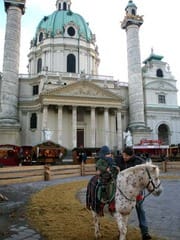As soon as I begin working in Tokyo, my life style changes completely as well other Japanese who had lived in Vienna.
I am working from 7 PM to 10PM around weekday and also daytime weekend. Since it may be usual situation in Tokyo, I can understand it regardless of what I want to do. But you must suppose what I have to do from morning till night, everyday, even in not a high volume center on the base of international standard.
The answer should be that a young surgeon must work as ICU care staff postoperatively and medical secretary, as well as surgeon. If anything, his/her work may be occupied mostly as like secretary including making medical record on hospital chart, department chart, filling in domestic society format, and writing letters to insurance company and so on.
Moreover Japanese traditional custom, which is that young workers had better to work longer time than their boss who are likely to want to stay their office long time without having hobby, prevent from improvement of working conditions. Therefore we have operation only 3 days a week, but pretty busy everyday.
I used to play my son all weekend in Vienna, but it becomes rear. Using Sunday afternoon I took my son to zoo and aqua museum in Tokyo for a month finally.
Ueno Zoo is well known as one of biggest one in Japan. He enjoyed looking at panda and elephant. I bought a year pass in spite of whether I can come here often.

Next weekend I took him to a nice aqua museum in the Kasai Rinkai Park, my favorite.

You can see a group of tunas wandering in a huge doughnut shape glass tank. I believe it shall be fabulous beyond imagination.


He also likes it very much.
They were short time with him in the meantime of working but I refreshed a little bit.
It is starting busy weekday again as usual.
I am working from 7 PM to 10PM around weekday and also daytime weekend. Since it may be usual situation in Tokyo, I can understand it regardless of what I want to do. But you must suppose what I have to do from morning till night, everyday, even in not a high volume center on the base of international standard.
The answer should be that a young surgeon must work as ICU care staff postoperatively and medical secretary, as well as surgeon. If anything, his/her work may be occupied mostly as like secretary including making medical record on hospital chart, department chart, filling in domestic society format, and writing letters to insurance company and so on.
Moreover Japanese traditional custom, which is that young workers had better to work longer time than their boss who are likely to want to stay their office long time without having hobby, prevent from improvement of working conditions. Therefore we have operation only 3 days a week, but pretty busy everyday.
I used to play my son all weekend in Vienna, but it becomes rear. Using Sunday afternoon I took my son to zoo and aqua museum in Tokyo for a month finally.
Ueno Zoo is well known as one of biggest one in Japan. He enjoyed looking at panda and elephant. I bought a year pass in spite of whether I can come here often.

Next weekend I took him to a nice aqua museum in the Kasai Rinkai Park, my favorite.

You can see a group of tunas wandering in a huge doughnut shape glass tank. I believe it shall be fabulous beyond imagination.


He also likes it very much.
They were short time with him in the meantime of working but I refreshed a little bit.
It is starting busy weekday again as usual.





















